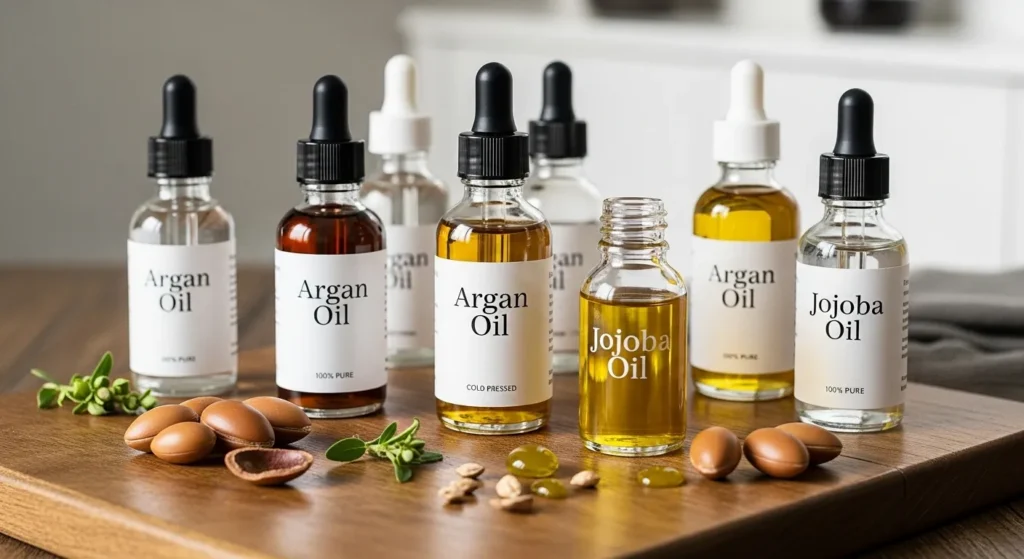Are you worried Does TRESemmé Cause Hair Loss? In this article on Tressemme and hair loss, we’ll cut through the confusion by looking at lawsuits, scientific evidence, and dermatologist insights.
By the end, you’ll know whether these shampoos are truly harmful, how to assess your shedding, and what safer alternatives exist. Backed by expert guidance and trusted sources, this guide helps you make confident decisions about your scalp health.
Understanding the Concern: TRESemmé & Hair Loss Claims

For years, consumers have raised concerns about TRESemmé shampoos and conditioners—especially those containing DMDM hydantoin, a preservative known as a formaldehyde releaser.
What is DMDM Hydantoin, and Why Does It Matter?
- DMDM hydantoin is a preservative used to prevent microbial growth in cosmetics.
- It works by slowly releasing trace amounts of formaldehyde, which keeps the product stable.
- While considered safe at regulated levels, critics argue that repeated exposure could cause skin irritation, allergic reactions, or hair damage in sensitive users.
The Formaldehyde Connection Explained
Formaldehyde is a known allergen and potential irritant. Though not toxic at the levels allowed in shampoos, some people may develop contact dermatitis, scalp inflammation, and hair breakage if they are particularly sensitive. This has fueled claims linking TRESemmé products to excessive shedding.
The Lawsuits: What Are Consumers Saying?
One of the biggest reasons this debate gained traction was due to class action lawsuits against TRESemmé’s parent company, Unilever.
Overview of Class Action Lawsuits
- In 2021, multiple lawsuits were filed in the U.S., alleging that TRESemmé keratin shampoos caused hair loss, scalp irritation, and chemical burns.
- Plaintiffs argued that consumers were not adequately warned about DMDM hydantoin and its potential risks.
Timeline of Major Legal Developments (2021–2025)
- 2021: First lawsuits filed in Illinois and California.
- 2022: Media coverage highlights consumer complaints and growing online forums about TRESemmé and hair loss.
- 2023: Ongoing litigation; no official recall of TRESemmé products, but Unilever faces mounting legal pressure.
- 2024–2025: Many cases consolidated, but no final ruling or compensation announced.
Previous Related Cases: Suave and Other Brands
TRESemmé is not the only brand under scrutiny. Suave, OGX, and WEN have also faced lawsuits alleging hair damage from similar preservatives. These cases often highlight the balance between consumer experience and regulatory safety standards.
What Does the Science & Regulation Say?
Regulatory Stance: CIR & SCCS Findings
- The Cosmetic Ingredient Review (CIR) and the European Scientific Committee on Consumer Safety (SCCS) have both ruled that DMDM hydantoin is safe in cosmetic formulations up to 0.6%.
- No major health authority has officially banned it in shampoos.
Expert Opinions and Dermatologist Input
According to dermatologists like Dr. Rana Irfan [Medical Reviewer Note Needed Here], most hair loss complaints linked to shampoos are due to:
- Contact dermatitis from ingredient sensitivity
- Excessive hair shedding from stress or hormonal imbalance
- Mechanical damage from heat styling, not shampoos alone
“While DMDM hydantoin can irritate sensitive scalps, it is unlikely to cause permanent hair loss in the average user.” – Dermatologist opinion
Skin Sensitivity, Allergic Reactions vs. Normal Shedding
It’s important to distinguish between:
- Irritant reactions → itching, redness, scalp burning
- Normal shedding → losing 50–100 hairs daily is expected
- True alopecia → progressive thinning unrelated to shampoo
When Shedding is Normal
- Hair grows in cycles: anagen (growth), catagen (transition), telogen (rest).
- During telogen, shedding occurs naturally—up to 100 hairs per day.
- Stress, diet, illness, or hormones can increase shedding, unrelated to shampoo use.
Is Your Hair Loss Linked to TRESemmé? How to Assess
If you suspect a link, here’s a practical checklist:
- Step 1: Observe symptoms
- Is your scalp itchy, red, or flaky?
- Are you seeing broken hairs or full strands with roots?
- Step 2: Eliminate the product
- Stop using TRESemmé for at least 4–6 weeks.
- Switch to a gentle, sulfate-free shampoo.
- Step 3: Track changes
- Keep a hair fall journal (approximate daily shedding).
- Note improvements after discontinuation.
- Step 4: Seek medical advice
- If symptoms persist, consult a dermatologist or trichologist.
- A doctor may run blood tests to rule out thyroid, anemia, or hormonal issues.
What You Can Do — Alternatives & Safe Practices
Checking Product Labels
Look out for preservatives like:
- DMDM hydantoin
- Quaternium-15
- Imidazolidinyl urea
These are all formaldehyde-releasers.
Safer Preservative Alternatives
- Sodium benzoate
- Potassium sorbate
- Phenoxyethanol
Tips for Maintaining Scalp Health
- Wash hair with lukewarm water, not hot.
- Avoid daily heat styling.
- Maintain a nutrient-rich diet (iron, vitamin D, biotin).
- Use scalp-friendly oils (argan, jojoba) to reduce irritation.

Frequently Asked Questions (FAQs)
Does TRESemmé cause hair loss?
There is no scientific proof that TRESemmé directly causes permanent hair loss. Some individuals may experience irritation or breakage due to ingredient sensitivity.
What ingredient is responsible?
Most claims focus on DMDM hydantoin, a preservative that releases trace formaldehyde.
Is DMDM hydantoin safe?
Yes, at approved levels, but sensitive individuals may still react.
What are safe alternatives?
Shampoos with phenoxyethanol, sodium benzoate, or sorbate preservatives are safer for sensitive scalps.
Take Your Next Step
If you’re concerned about hair loss linked to shampoos or scalp irritation, don’t rely on internet rumors alone. Get expert guidance.
👉 Book a consultation with Dr. Rana Irfan in Islamabad today to receive a professional evaluation, personalized treatment options, and trusted solutions for your hair health.
Conclusion
The debate around TRESemmé and hair loss reflects both consumer experiences and scientific nuance. While lawsuits highlight potential risks of ingredients like DMDM hydantoin, regulatory authorities still consider them safe at approved levels.
If you suspect a reaction, the safest approach is to discontinue use, monitor changes, and seek medical advice. With the right knowledge and professional care, you can protect your scalp and make informed choices for healthy, confident hair.
